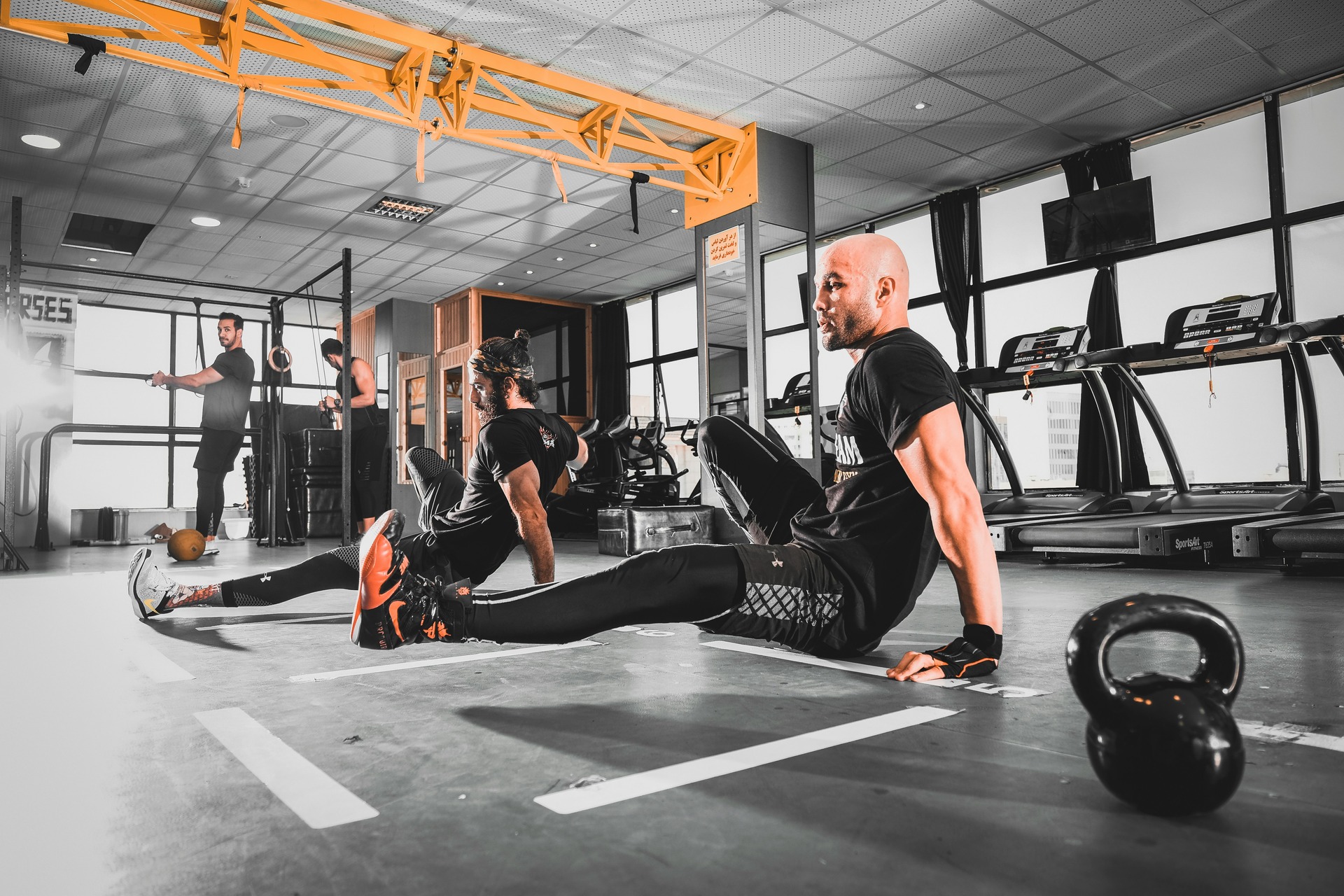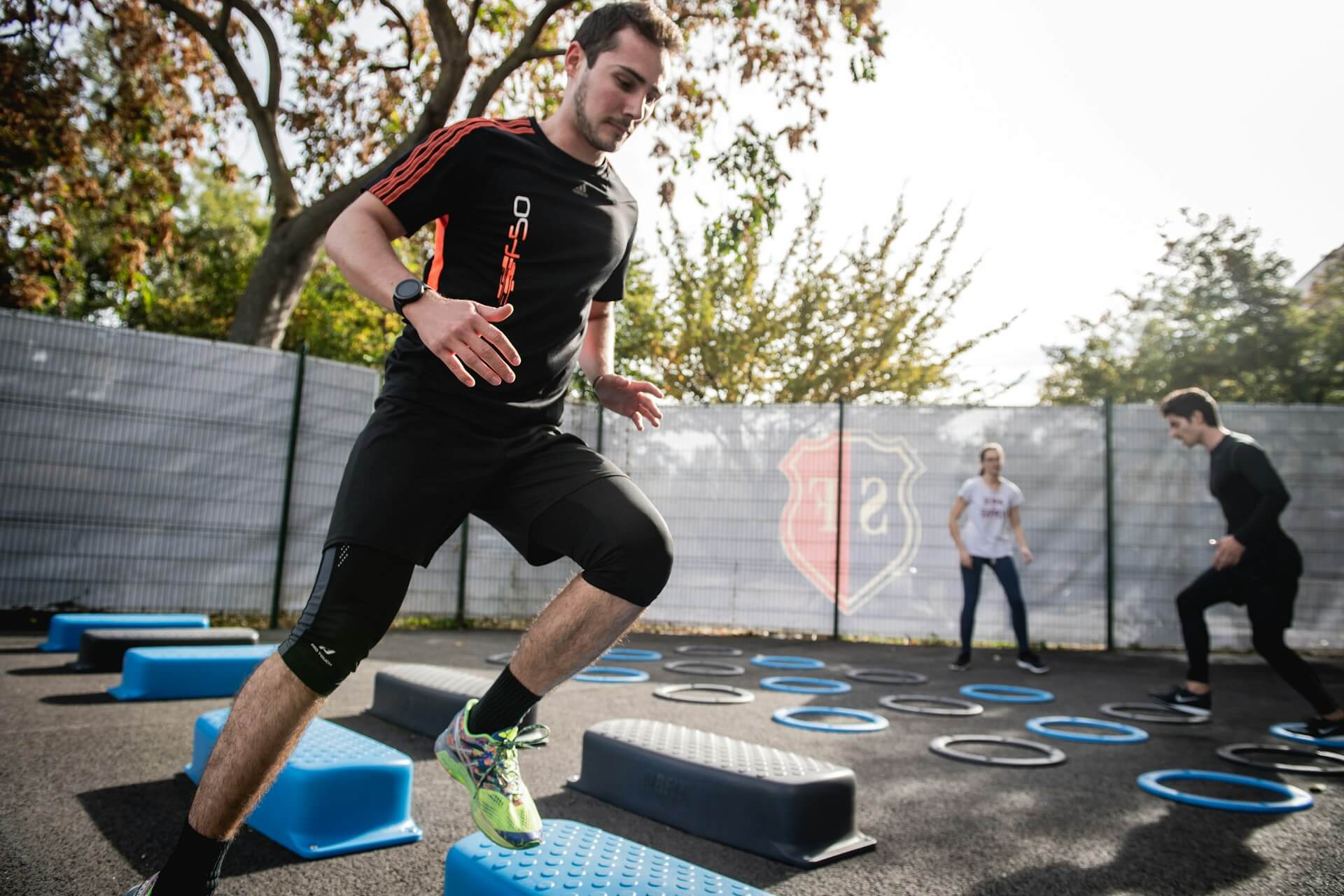Gym Anxiety Solutions to Boost Your Fitness Journey
Jun 25, 2024

As an Amazon Associate, Modded gets commissions for purchases made through links in this post.
Gym anxiety can be a significant barrier to starting and maintaining a fitness routine, impacting your confidence and enjoyment in the gym. When you’re anxious, it’s easy to feel overwhelmed or intimidated by unfamiliar equipment, experienced gym-goers or the gym environment.
This anxiety can discourage you from going to the gym, leading to missed workouts and stalled progress on your fitness journeys. Addressing gym anxiety is crucial for ensuring you can work out consistently, feel comfortable and fully enjoy the benefits of your fitness routine. Tackling gym anxiety head-on can create a positive and empowering gym experience that supports your overall well-being.
What Is Gym Anxiety?
Gym anxiety is the feeling of unease or fear associated with going to the gym. Common symptoms include sweating, rapid heartbeat, nervousness and a sense of being overwhelmed. If you have social anxiety, you may be more likely to experience gym anxiety, as the gym can be a social environment where you feel scrutinized.
People often experience gym anxiety due to fear of judgment from others, unfamiliarity with gym equipment and concerns about not fitting in. These factors can create a barrier to starting or maintaining a fitness routine. In addition, these conditions make it essential to understand and address your anxiety to have a more comfortable and productive gym experience.
Identify Personal Triggers
Identifying personal triggers for gym anxiety is a crucial first step in managing it effectively. Start by reflecting on past experiences at the gym or other public places, especially if post-COVID anxiety has heightened your fear of being in public spaces. Likewise, pay attention to specific situations that make you feel anxious, such as crowded areas, using unfamiliar equipment or feeling watched by others.
Self-awareness is pivotal to managing anxiety, so take note of your physical and emotional reactions in these situations. Common triggers include fear of judgment, not knowing how to use equipment and discomfort in social settings. Recognizing these triggers lets you develop strategies to address them and make your gym experience more positive and less stressful.
Preparing Mentally and Physically
Mental preparation before heading to the gym can significantly reduce anxiety. Techniques like positive affirmations and visualization can boost your confidence and set a positive tone for your workout. For example, remind yourself of your strengths and visualize completing your exercises.
Physical preparation is equally important. Plan your workouts and set realistic goals to ensure you know exactly what to do once you arrive. Establishing a pre-gym routine — such as listening to your favorite music or doing light stretching — can help calm your nerves and create a sense of readiness. These combined strategies will help you approach your gym session with a more relaxed and focused mindset.
Choosing the Right Gym and Time
When selecting a gym, look for one that feels comfortable and welcoming. Visit a few gyms in your area to see which ones have a friendly staff, clean facilities and a supportive community. Consider going during off-peak hours — like early in the morning — when gyms are much emptier compared to the evening.
These factors can make the environment less intimidating and give you more space to familiarize yourself with the equipment. Moreover, a supportive and non-intimidating gym environment is crucial for reducing anxiety and ensuring you feel motivated to return regularly. Prioritize finding a gym where you feel at ease and confident, which will enhance your overall fitness experience.
Utilizing Distractions and Focus Techniques
Effective distraction techniques during workouts can help reduce anxiety and keep you focused. Listening to music or podcasts can provide a mental escape and make time quicker. Focused breathing and mindfulness exercises are also powerful tools for managing anxiety.
Try deep breathing techniques or a short mindfulness practice before and during your workout to stay calm and centered. Staying present and concentrating on your exercises rather than the surroundings helps you avoid feeling overwhelmed. Integrating these strategies creates a more enjoyable and anxiety-free workout experience.
Starting Small and Gradual Progression
Small, manageable workouts significantly reduce gym anxiety and build confidence. Begin with exercises you feel comfortable doing, and gradually increase the intensity and duration of your workouts. This gradual progression helps you avoid overwhelming yourself and prevents muscle mass and strength plateaus, ensuring continuous improvement.
Celebrating small victories – such as completing a workout or lifting a slightly heavier weight — can boost your confidence and motivate you to keep going. Taking it step by step lets you create a positive workout experience that reduces anxiety and supports your fitness goals.
Setting Realistic Goals and Tracking Progress
Setting achievable and realistic fitness goals is crucial for maintaining motivation and reducing anxiety. When your goals are attainable, you’re more likely to stay committed and feel accomplished. Track your progress using a fitness journal, app or simple notes to monitor improvements over time.
In addition, celebrate milestones — whether running a bit longer or lifting a heavier weight — to keep yourself motivated. This process of goal-setting and tracking creates a clear path for your fitness journey, giving you a sense of direction and reducing the anxiety of uncertainty. By seeing your progress, you’ll stay motivated and confident in your abilities.
Seeking Support and Guidance
Working with a personal trainer or fitness coach offers numerous benefits, including personalized workout plans and expert guidance. A fitness coach can also provide emotional support and encouragement, helping you overcome obstacles and stay motivated.
Finding a workout buddy or joining fitness classes can make your gym experience more enjoyable and less intimidating. Having someone to share the journey with can boost your confidence and provide accountability.
Moreover, support from friends and family is crucial in alleviating gym anxiety, as their encouragement and presence can make you feel more comfortable and motivated. Surrounding yourself with a supportive network can transform your fitness journey into a positive and empowering experience.
Embracing a Positive Mindset
A positive mindset is decisive in overcoming gym anxiety, helping you approach workouts confidently and enthusiastically. Foster self-compassion by being kind to yourself and recognizing your efforts, even when progress seems slow. Avoid negative self-talk by replacing critical thoughts with affirmations and focusing on what you can do rather than what you can’t.
Moreover, patience and persistence are fundamental. Building confidence takes time and consistent effort. Celebrate your small achievements and understand that setbacks are part of the journey. Maintaining a positive outlook and treating yourself with kindness reduces anxiety and lets you enjoy your fitness routine more.
Embracing a Positive Fitness Journey
Apply these solutions to overcome gym anxiety and enjoy your fitness journey more confidently and efficiently. Conquering gym anxiety enhances your workouts and boosts your well-being, leading to a healthier and happier life.






